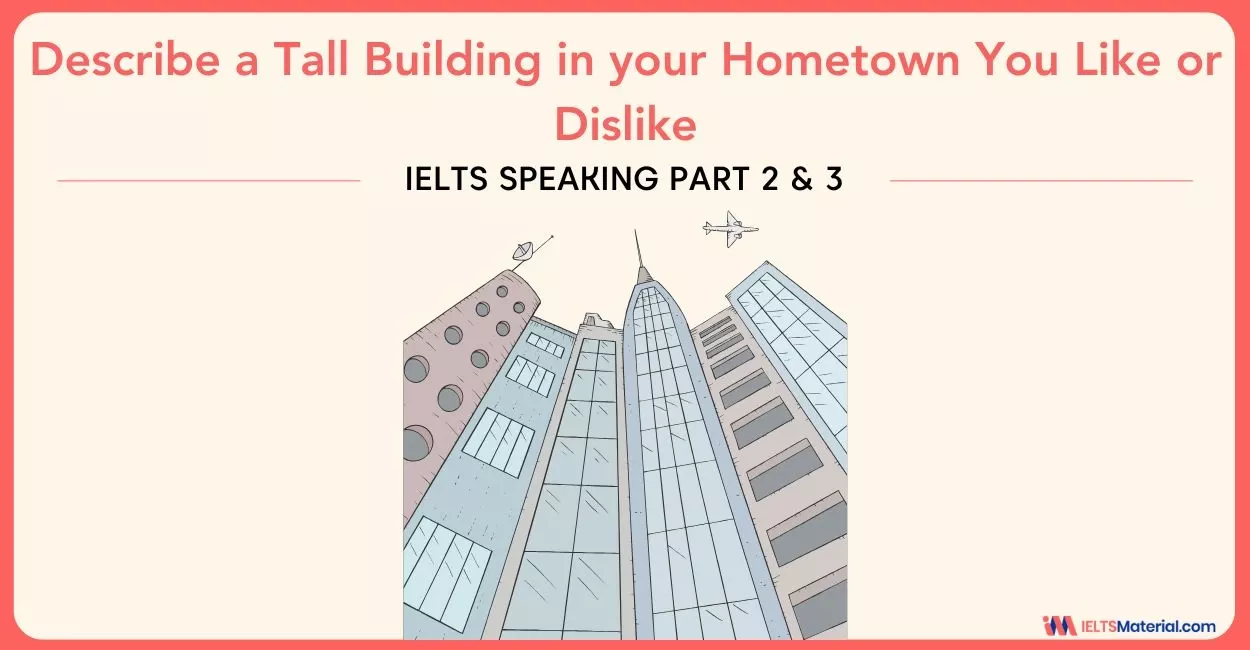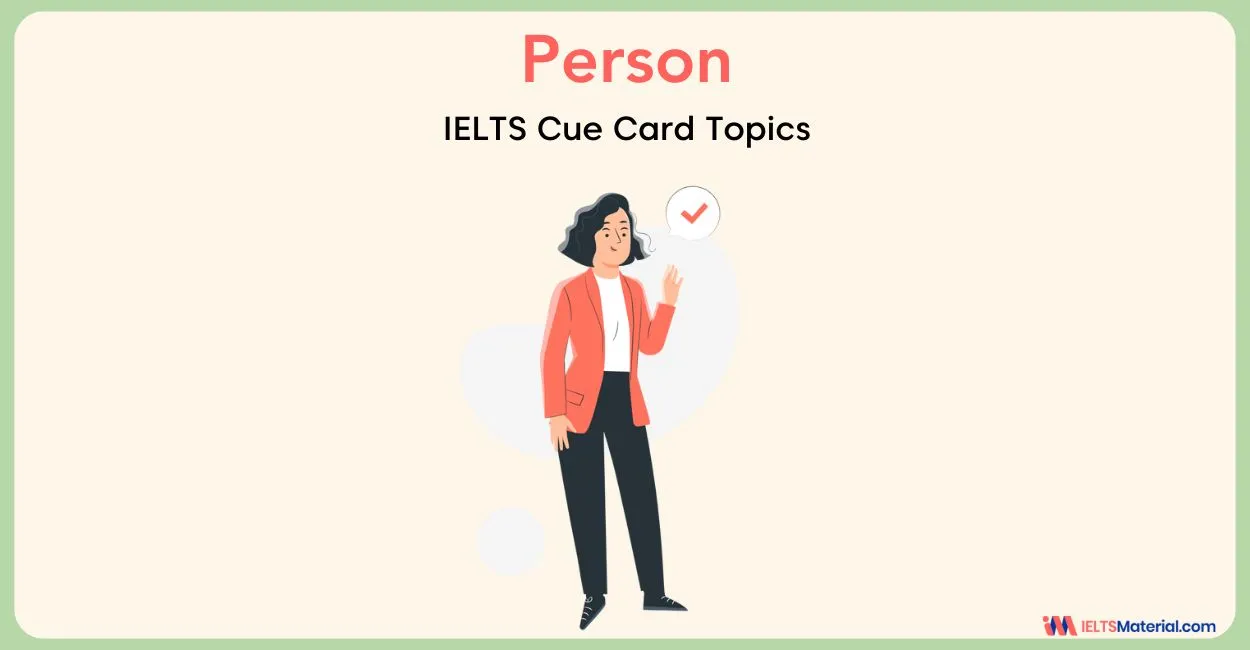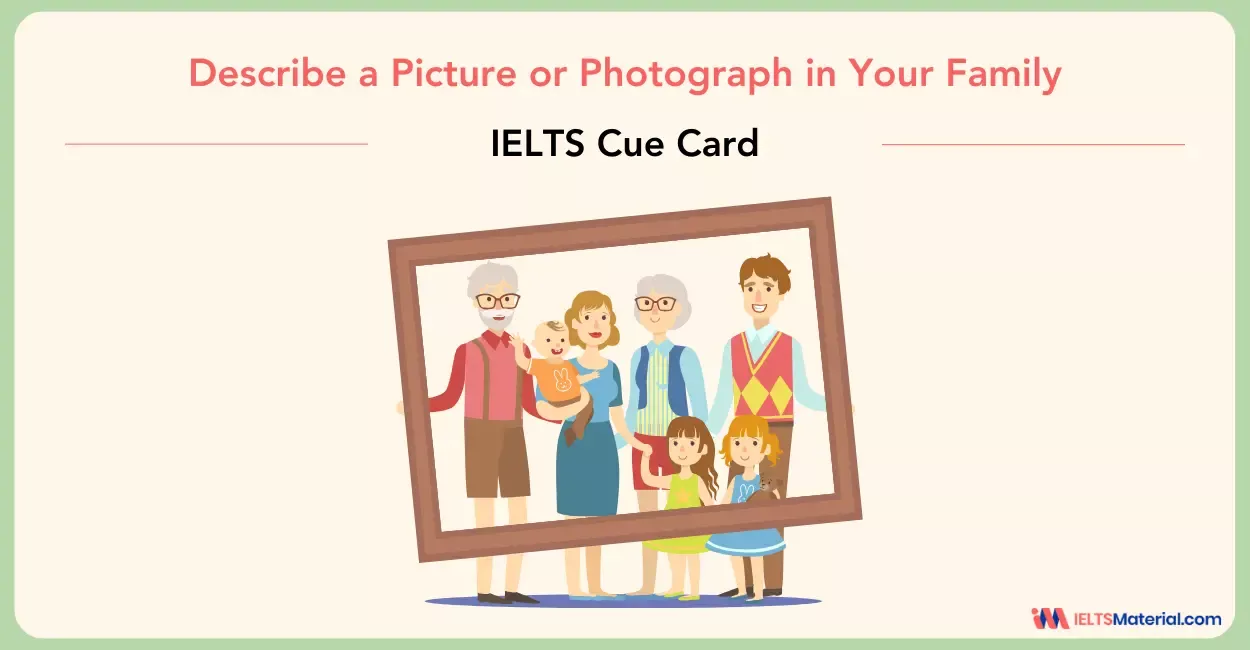Describe an Indoor Game that You Liked to Play When You Were a Child - IELTS Speaking Part 2 & 3
10 min read
Updated On
-
Copy link
In order to achieve top scores for ‘Describe an indoor game that you liked to play when you were a child’, recall childhood experiences , explain them and use appropriate vocabulary. See how Band 9 answers should be structured in Parts 2 and 3.
Table of Contents
- Describe an indoor game that you liked to play when you were a child IELTS Speaking Part 2 Question & Sample Answers
- Vocabulary for Describe an indoor game that you liked to play when you were a child IELTS Cue Card
- Describe an indoor game that you liked to play when you were a child – IELTS Cue Card Part 3 Follow-Up Questions
- Vocabulary for Describe an ambition you have not yet achieved IELTS Follow-up Questions

Predicted Cue Cards Topics 2024
Indoor games have always been an important part of childhood, providing not just entertainment but also valuable lessons in patience, strategy, and social interaction. While answering any cue card topic from a list of IELTS cue cards for topic – Activity like ‘Describe an indoor game that you liked to play when you were a child’, it is important to recall those memories and explain those experiences with a range of vocabulary and grammar structures.
Therefore, in this blog, we have curated 3 sample answers on the topic, describe an indoor game that you have played with friends or family and related Part 3 questions. They will help you understand how to frame Band 8+ answers and use appropriate IELTS vocabulary to impress your IELTS examiner.
Describe an indoor game that you liked to play when you were a child IELTS Speaking Part 2 Question & Sample Answers
In the IELTS Speaking test, especially in IELTS Speaking Part 2 , the cue card round, you may be asked to describe a childhood memory, hobby, or favorite game. One common topic is ‘Describe an indoor game that you enjoyed as a child’.
Describe an indoor game that you liked to play when you were a child
You should say :
- What the game was?
- Who did you play it with?
- How did you play it?
- Where did you play it?
- And explain why you liked playing that game.
Have a look at this latest IELTS Speaking cue card topic with samples answers below. These sample answers below can also be formatted for similar cue card topics, like ‘describe the game you enjoyed playing when you were younger’, ‘describe an indoor game that you would like to play’, etc.
Describe an indoor game that you liked to play when you were a child – IELTS Cue Card Sample Answer 1
Click on the audio to listen to the sample answer below. Pay attention to the intonation and pronunciation of the words.
- What the game was?
Undoubtedly, childhood is a golden phase of everybody’s life and talking about all those memories makes me nostalgic. During my childhood, I was quite an active player. I was engaged in plenty of outdoor and indoor games, including chess, monopoly, building blocks, puzzles, and more. One of the games that I played a lot was Ludo.
- Who did you play it with?
- Where did you play it?
Everyone in my family used to enjoy playing this game in their spare time, and they still do. We used to play together as a family whenever everyone got home from work in the evenings or afternoons, or whenever we were free on weekends. It has evolved into a favorite pleasure game for spending quality time with our family while smiling, giggling, and engaging in friendly competition.
- How did you play it?
It is a classic board game played with two to four players. The game consists of a square board divided into four colored sections – red, blue, green, and yellow – each assigned to a player. The objective of the game is to move all four tokens from the starting position to the center of the board, following a designated path. Players roll a six-sided dice to determine their moves, and the game involves both strategy and luck.
- And explain why you liked playing that game.
There were several reasons why I enjoyed playing Ludo as a child. Firstly, it was a great way to spend time with my family and friends, strengthening our bond. The game was simple yet engaging, making it easy for everyone to participate. Moreover, the mix of strategy and luck kept it unpredictable, ensuring that no two games were the same. The competitive yet friendly atmosphere made every match exciting, and the thrill of winning after a well-played move was unmatched.
Get expert help to improve your IELTS Speaking score—register for our online webinar now!
Describe an indoor game that you liked to play when you were a child – IELTS Cue Card Sample Answer 2
- What the game was?
There were several competitive indoor games that I played during my childhood. One such game that I loved playing as a child was Carrom. It was a highly engaging board game that required skill, precision, and patience.
- Who did you play it with?
I mostly played Carrom with my family members, including my parents and siblings, as well as with my friends when they visited. It was a popular game in our home, especially during holidays and gatherings. Sometimes, we even organized mini-tournaments, making the game even more exciting.
- How did you play it?
Carrom is a tabletop game played on a square wooden board with four corner pockets. The game involves flicking a striker to hit small wooden discs, called carrommen, into the pockets. There are two sets of carrommen—one in black and one in white—along with a special red piece called the queen. The game started with players taking turns to flick the striker using their fingers. The goal is to pocket all your assigned pieces before your opponent while also securing the queen.
- Where did you play it?
We usually played Carrom in the living room or on the balcony at home. It was a common activity during rainy days or hot summer afternoons when playing outside wasn’t an option. Sometimes, we also played at a relative’s house or during family gatherings, making it a fun and social experience.
- And explain why you liked playing that game.
I loved playing Carrom for multiple reasons. Firstly, it was a game that improved my concentration and hand-eye coordination. I enjoyed the challenge of making perfect shots and developing new strategies to outplay my opponents. Secondly, it was a great way to spend time with family and friends, strengthening our bond. Lastly, the competitive yet friendly nature of the game made it thrilling, especially when trying to pocket the queen or make tricky shots.
Describe an indoor game that you liked to play when you were a child – IELTS Cue Card Sample Answer 3
- What the game was?
I, like other youngsters, have participated in a variety of indoor and outdoor activities, and I continue to do so whenever I get the opportunity. One such game that holds a special place in my heart is Monopoly.
- Who did you play it with?
I usually played Monopoly with my family, including my siblings and cousins, especially during holidays or weekends. Sometimes, my friends would join in, and we would have long, competitive matches that lasted for hours. It was a game that brought us together and created fun yet intense moments of competition.
- How did you play it?
Monopoly is a strategy-based board game centered around buying, trading, and managing properties. The game includes a board with different properties, play money, tokens, dice, and chance cards. Players take turns rolling the dice, moving around the board, purchasing properties, and collecting rent from opponents who land on their spaces. The goal is to build wealth, bankrupt other players, and ultimately become the richest person in the game.
- Where did you play it?
We usually played Monopoly in the living room during the weekend. Other than that, it was also our go-to game during family gatherings, especially when it was too hot or rainy to play outside. Sometimes, we even carried it along for vacations and played in hotel rooms, making it a great travel-friendly game.
- And explain why you liked playing that game.
I liked Monopoly because it was not just a game of luck but also of skill and strategy. I enjoyed making smart investments, negotiating trades, and planning moves to win. Additionally, it helped me understand the basics of money management in a fun way. Lastly, Monopoly created memorable moments of laughter, excitement, and even friendly arguments, making it an unforgettable part of my childhood.
Related Cue Cards
- Describe a game (not a sport) you played in your childhood – IELTS Cue Card Sample Answers
- Describe Your Favourite Toy in Your Childhood - IELTS Speaking Cue Card
- Describe a childhood memory you have - IELTS Cue Card
- Describe a Happy Memory from Your Childhood IELTS Cue Card
- Describe a typical day in your life when you were a child - IELTS Cue Card
- Describe a time when you spend time with a child: IELTS Cue Card
Vocabulary for Describe an indoor game that you liked to play when you were a child IELTS Cue Card
An essential aspect of achieving a high speaking band score on the IELTS is using proper vocabulary while responding to cue cards, such as ‘Describe an indoor game that you liked to play when you were a child". Thus, check the list of words and pick out some of the latest IELTS Speaking vocabulary to boost your score for games and childhood.
|
Word |
Meaning |
Example Sentence |
|---|---|---|
|
Nostalgic |
feeling happy and slightly sad when thinking about past experiences |
Looking at old photos makes me feel nostalgic about my childhood. |
|
Designated |
officially assigned or chosen for a specific purpose |
The corner seat was designated for the team captain. |
|
Dice |
a small cube with different numbers of spots on each side, used in games |
He rolled the dice and moved his piece forward in the board game. |
|
Thrill |
a sudden feeling of excitement and pleasure |
Winning the final match gave me an incredible thrill. |
|
Unmatched |
better than anything else of the same kind |
Her skill in chess is unmatched in our school. |
|
Precision |
the quality of being exact, accurate, and careful |
Carrom requires precision to aim and hit the coins correctly. |
|
Opponent |
a person who competes against you in a game or competition |
My opponent in the chess tournament was very experienced. |
|
Outplay |
to play a game better than an opponent |
He outplayed everyone in the tournament and won the championship. |
|
Holds a special place in (my) heart |
is very important or meaningful to someone |
My childhood home holds a special place in my heart. |
|
Bankrupt |
having no money or assets left to pay debts |
He lost all his properties in Monopoly and went bankrupt. |
|
Go-to |
something that is always relied on or preferred |
Monopoly is our go-to game for family game nights. |
Get expert help to improve your IELTS Speaking score—register for our online webinar now!
Describe an indoor game that you liked to play when you were a child – IELTS Cue Card Part 3 Follow-Up Questions
Given below are the sample answers to IELTS Speaking Part 3 questions related to the cue card, Describe an indoor game that you liked to play when you were a child, with expert-curated sample answers and vocabulary that you can use in your own responses.
- What indoor games do children like to play nowadays?
Children have changed their preferences from games like chess, and carrom, to video games as the latter is more convenient and fun to play. With the advent of technology, almost everyone has a smartphone that has many inbuilt games for children and doubles the fun and joy of playing.
- What qualities should a team leader have?
There are many qualities that a team leader should possess. The first one among them is empathy. A good team leader must be well-experienced to understand his responsibility and the struggle faced by his colleagues. He must put himself in his colleague’s shoes and understand their needs. He must coordinate with them and get their suggestions.
- Is teamwork important?
Yes. According to me, teamwork is important as it teaches us to cooperate, coordinate, collaborate, and communicate with each other freely, builds conflict management skills, and fosters friendship and loyalty towards the other members. When a team works effectively towards a common goal, they tend to be successful.
- What do you think of people spending too much time playing computer games?
It is up to the individual to choose between the two. But people should focus more on playing outdoor games and doing physical activities. Overdoing computer/video games is wrong for several reasons and has negative impacts. They miss out on their social, physical, intellectual, and emotional development. Therefore, I firmly believe that spending too much time playing computer games can be very harmful for the upcoming generation.
Grab Our 4.5+ Rated Speaking Ebook Now to Level Up! Buy Now!
Vocabulary for Describe an ambition you have not yet achieved IELTS Follow-up Questions
Here are the IELTS vocabulary for Part 3 follow-up questions on ‘Describe an indoor game that you liked to play when you were a child’ with examples. Also learn and use some useful idioms for IELTS Speaking to score band 8.0+ and make your answers more native-like.
|
Word |
Meaning |
Example Sentence |
|---|---|---|
|
Latter |
denoting the second of two things or person |
The boss was impressed with the latter plan. |
|
Convenient |
fitting in well with a person’s needs or activities. |
Working from home is a convenient option for everyone. |
|
Empathy |
the ability to share and understand the feelings of another person |
Meera showed great empathy for poor children. |
|
Collaborate |
work together on a project or an activity |
Rose and John collaborated on a US project. |
|
Impacts |
influence or a marked effect |
There are many negative impacts of global warming. |
|
Upcoming Generation |
people who will come in the future |
The upcoming generation will be more intelligent and technically advanced. |
To sum up, indoor games play a crucial role in shaping childhood experiences, offering not just entertainment but also valuable lessons in patience, strategy, and social interaction.
Whether it’s a board game like Monopoly, a strategic game like Carrom, or a fun-filled game like Ludo, these games create lasting memories and strengthen bonds with family and friends. So, practice discussing an indoor game with a range of vocabulary, past tense usage, and storytelling skills for a better IELTS band score in IELTS Speaking.
Also Check:
- Childhood - IELTS Speaking Part 1 With Sample Answers
- Understanding Fluency and Coherence in IELTS Speaking
- Reasons For The IELTS Examiner To Interrupt You in IELTS Speaking
- Coherence of Listening with Reading and Speaking for IELTS
- 75+ Common English Words Used in IELTS Speaking Test
- 151 IELTS Multilevel Speaking Part 2 & 3 Topics with Model Answers

Top 10 IELTS Cue Cards + Band 9 Answers
Explore other Cue Cards


Kasturika Samanta
Recent Articles

Haniya Yashfeen

Kasturika Samanta

Nehasri Ravishenbagam







Post your Comments